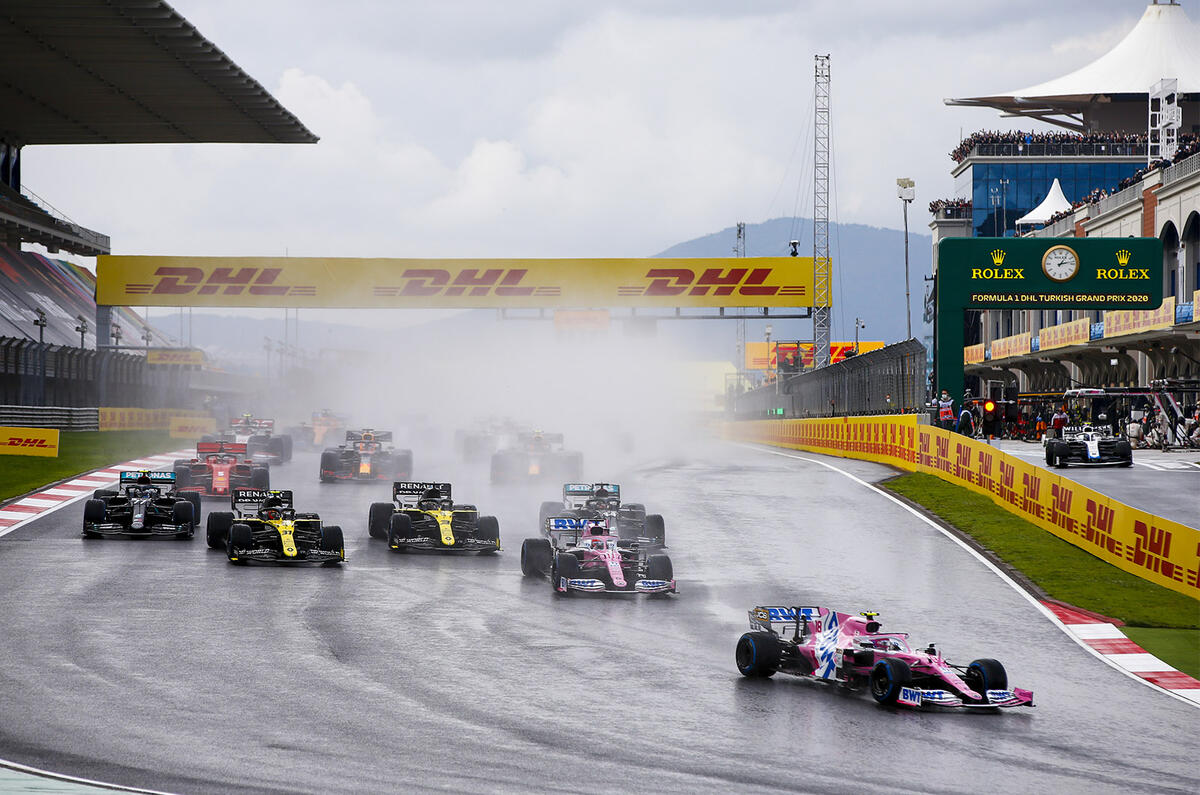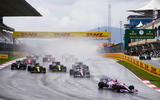There’s a contradiction at the heart of the 2020 Formula 1 season that has made it one of the most memorable in years.
On the one hand, it has been entirely predictable, given the continuing level of dominance achieved by Mercedes-AMG, which has won 12 of the 14 races up to and including the Turkish Grand Prix, with the peerless Lewis Hamilton claiming 10 of them. On the other hand, few have been dull, thanks in part to the unique circumstances triggered by the global pandemic.
Good motorsport feeds off variables, from the weather to car and tyre performance to circuit characteristics. The more variables that can be thrown in, the more unpredictable the racing tends to be – and usually that leads to a better, more engaging spectacle. And in 2020, there have been a rash of significant variables to shake things up and somehow stop F1 going stale.
Despite Hamilton’s incredible record-breaking streak, only rarely has he been gifted an easy run: either his team-mate Valtteri Bottas has tested his resolve (although very clearly nowhere near often enough); Max Verstappen and his Red Bull-Honda team have worked some wonder to put up a fight; or the context of the refreshingly unfamiliar schedule of races at new or ‘old flame’ venues has thrown up the unexpected. And it’s that last factor that, for me, has been the tastiest ingredient to make F1 the captivating sport it always should be.
Turkey was no turkey
Istanbul Park was a case in point. Yes, it rained, but it was the new track surface completed just 10 days before the action started that really threw the teams and drivers. Turkey returned to the F1 calendar for the first time since 2011 only because of the emergency need to find European venues that could host races safely during a time of severe travel restrictions. Its comeback might well be a one-off, sadly, which makes the commitment to laying a new surface at short notice all the more impressive. But, as Silverstone boss Stuart Pringle could tell you after the headaches he experienced in 2018, laying a new track is pitted with complications, especially if it’s done in a rush.












Join the debate
Add your comment
If you knew anything about F1 you would know that wet races are not going to assist with shaking things up as the best driver is always twice as good in the rain, either that or you get a flash in the pan winner occasionally. Schu, Senna, Hamilton, and most of the people that have won a championship because they are the the best with limited grip or best at sliding the car around which is obvious. Michael schumacher was on slick tyres in an inferior car and still managed to hold off D.Hill in the Williams on wets Belgium 1995 IIRC. This season more than any recent season other has proved that the best driver will shine even more brighter in adversity.
What I would like to see, more races scheduled outside the driest time of year. Wet races always spice things up.